A handful of mainstream directors possess a name synonymous with horror, and one of these fabled few is Wes Craven. Over the last thirty years, through cinematic creations like Nightmare On Elm Street and the satirical Scream trilogy, the horror maven has probed our psyches, extracted our dark sides, and plastered them onscreen in larger-than-life form. Heís given cinema one of its greatest villains, the burn-scarred, razor-clawed Freddy Krueger, who slays his victims in their dreams. Yet unlike the hollow shock tactics of slasher flicks, Cravenís films are concept-driven and allegorical, and they often get under your skin because of their metaphorical power.
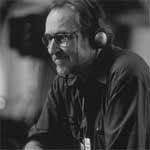 In his most brutal works, particularly the recently reissued Last House On The Left and The Hills Have Eyes, compassionate people face savage adversaries that unleash the feral impulses lurking beneath their cultured veneer. In other movies, the modern fear of technology run amok becomes personified: The executed psychopath in Shocker returns from the dead to torment new victims through their television sets, a strange mutation turns scientist Alec Holland into the ostracized Swamp Thing, while the teen girl rejuvenated through robotics in Deadly Friend embarks on an unexpected killing spree. The director has also tackled other themes Ė culture clash underscores The Serpent And The Rainbow, while class warfare inflames the People Under The Stairs.
In his most brutal works, particularly the recently reissued Last House On The Left and The Hills Have Eyes, compassionate people face savage adversaries that unleash the feral impulses lurking beneath their cultured veneer. In other movies, the modern fear of technology run amok becomes personified: The executed psychopath in Shocker returns from the dead to torment new victims through their television sets, a strange mutation turns scientist Alec Holland into the ostracized Swamp Thing, while the teen girl rejuvenated through robotics in Deadly Friend embarks on an unexpected killing spree. The director has also tackled other themes Ė culture clash underscores The Serpent And The Rainbow, while class warfare inflames the People Under The Stairs.
Within his best films, Craven tackles our phobias and shadow sides and forces us to face them out in the open where we are unable to hide. Thus it should probably come as no surprise for fans to learn that this filmmaker is a former college professor. Before he became a film director, Wes Craven obtained a Bachelorís Degree in English from Wheaton College and a Masters Degree from John Hopkins University, where he studied English and Philosophy. Afterward he became a Humanities Professor at Clarkson College before diving into the world of film production, first as a sound editor.
Since 1971ís sex education flick Together, his co-directorial debut with future Friday The 13th producer Sean S. Cunningham (which is also notable for being Marilyn Chambersí screen debut), Craven has directed and often written many well-known films. Additionally, he has served as executive producer for a number of projects, including Wishmaster, Dracula 2000, and the television series Nightmare Cafť, which he also created. In an unusual twist, he wrote and directed Music Of The Heart, a 1999 film starring Meryl Streep as a teacher who starts a violin class in East Harlem.
Wes Craven recently took a break from his new production Cursed Ė a werewolf movie scripted by Screamís Kevin Williamson Ė to promote the Anchor Bay DVD reissue of his 1977 movie The Hills Have Eyes, a violent tale of suburbanites battling cannibalistic mountain people. Shortly after the release of Hills, Universal unleashed the three-movie Wes Craven Collection, which includes The Serpent And The Rainbow, Shocker, and The People Under The Stairs.
The Hills Have Eyes offered a suitable starting point for this conversation, which soon veered towards Cravenís other films and his thoughts on the state of modern horror cinema.
KNAC.COM: The DVD boom has certainly rejuvenated the horror genre. Aside from recent box office smashes like Freddy Vs. Jason, do you think the DVD market is helping to bring movies like The Hills Have Eyes to a whole new audience?
WES CRAVEN: I think it is. Thereís always not that much good horror out there, and I think the re-release has made it possible for a whole new audience not only to see it but also to become aware of it. Iíve talked to a lot of kids for whom The Hills Have Eyes is so far beyond their lifetime almost that they donít even know about it. If they see my name and see the title, maybe theyíll buy it and have some fun with it.
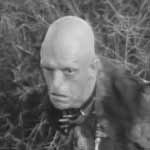 KNAC.COM: Do think the DVD influence will be temporary or will it have a long-term effect on horrorís popularity?
KNAC.COM: Do think the DVD influence will be temporary or will it have a long-term effect on horrorís popularity?
CRAVEN: I think it will help for quite awhile, especially because thereís quite a backlog of films to be put on DVD. The bulk of my films arenít on DVD, as far as I know. Certainly not any editions that have any extra material and so forth. There are a lot of fun things to be learned by these special editions. I think theyíre doing People Under The Stairs or Shocker, but they didnít approach us for any additional materials or commentaries. If youíre going to re-release an old film, you might as well get some of the materials and have fun with it.
KNAC.COM: Before Anchor Bay reissued The Hills Have Eyes, when was the last time you had seen it?
CRAVEN: I literally canít remember. I think I did see it relatively recently, but just the end of it at a panel I did a couple of years ago. As far as sitting in the theater and watching it on film, I havenít seen it in ten or fifteen years. Itís been a long time.
KNAC.COM: When you look back at The Hills Have Eyes or Last House On The Left, are there moments that you are still proud of? Are there also moments that make you wince?
CRAVEN: You know, by and large Iím very proud of what we achieved with such minuscule budgets, small crews, and short shooting schedules. Watching Hills at a film festival in Santa Monica with the original cast, I was thinking these are really strong performances and the film really holds up. Itís full of ideas, and itís pretty amazing that we did it on such a small budget. And such a small budget of experience, too, I must say. It was only my second film and [producer] Peter Lockeís second film. We didnít have a lot of experience between us, and weíd certainly never done anything in the desert. We were both from New York, so we were a couple city guys going out in the middle of the wilds.
KNAC.COM: Thirty years later, Last House On The Left still makes you squirm.
CRAVEN: Last House On The Left is a much more disturbing film, although Hills makes you cringe with the attack in the trailer and the scene with the baby. But itís not quite the same as the rape and humiliation that Last House On The Left had. That was pretty much in a category by itself.
KNAC.COM: You originally had a slightly happier ending for The Hills Have Eyes, which is available on the new DVD.
CRAVEN: I literally had forgotten about it. I was amazed to actually see it.
|
"I think Vietnam, more than anything, was the influence on [Hills and Last House], just realizing that you could send out the nicest American kids and theyíll come back having done things they never thought they could do."
|
|
KNAC.COM: So you didnít play a role in finding it?
CRAVEN: No, I didnít. It was literally dragged out of a salt mine in Utah or somewhere [from] a company that stores films. They took over an old salt mine, so literally it had been buried underground for years. They have perfect temperatures and perfect humidity.
I was actually able to find my storyboards and five different drafts [of the script]. Some of this stuff I packed away years ago and just kept it in storage. My assistant found a lot of stuff.
KNAC.COM: DVDs are like archives for future generations, donít you think?
CRAVEN: It even takes the curse off of studios fiddling around with your films. You can figure that sometime in the future, maybe Iíll get the chance to go back and do my cut or show that scene that they cut out.
KNAC.COM: Did they edit a lot of your films in the early days? Were there prints that had things hacked out of them?
CRAVEN: No, just only for censorship reasons. I was the editor. It was just Peter Locke and myself on that film [Hills Have Eyes]. It was virtually the two of us.
KNAC.COM: So they werenít like the Italian horror movies of the Seventies that were almost literally hacked to death when they came to the States?
CRAVEN: There are moments in The Hills Have Eyes that were shortened, and in some of the cases they were put back. I was pretty pleased with the old cut. Itís pretty intact, actually, more so than Last House On The Left, which got pretty severely hacked up. I donít know whether there are any fully intact copies of how it came out at first.
KNAC.COM: Even the DVD that MGM put out?
CRAVEN: I think there are still missing pieces.
KNAC.COM: Your early films like Last House On The Left and The Hills Have Eyes deal with civilized people discovering their latent animal instincts when theyíre forced to defend themselves from savage attacks. How much of your background in psychology did you bring in to the stories and characters?
CRAVEN: Everything you learn and know melts into what you make in a film. But I think Vietnam, more than anything, was the influence on those, just realizing that you could send out the nicest American kids and theyíll come back having done things they never thought they could do. That the whole nature of warfare, as it began for Americans in Vietnam, was the idea of guerrilla warfare, where there were not only no uniforms, but civilians were used as a device for political gain or sway. Civilians were killed in a routine matter. It was a whole turn where as brutal as war was, it just felt like it hadnít quite been that low before. Now it seems to have descended even lower with Palestinians sending their kids out with bombs strapped around their waists. Itís nightmarish, you know. That was the strongest influence on those films, just coming to terms with the death of the American Dream and the loss of American innocence and [the sense of] clear good and evil. There are some people that are still alive that have that [notion], and they are mostly Republicans.
KNAC.COM: Weíre supposedly more civilized today, yet people are seemingly becoming more barbaric and more tribal.
CRAVEN: As far as the pendulum swings one way, it has to swing that far in the other direction. You wish it would come to rest in the middle some place.
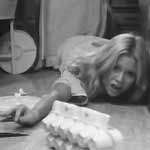 KNAC.COM: Like the way both sides keep perpetuating violence in the Middle East?
KNAC.COM: Like the way both sides keep perpetuating violence in the Middle East?
CRAVEN: [Years ago,] I was teaching one of the trilogies of Sophocles, the Oedipus trilogy, which is about revenge. It ends up in this endless cycle of violence Ė revenge, revenge, revenge. The wisdom of the whole cycle is that somebody has to stop arbitrarily and just allow themselves to have something horrible done to them but not respond, just to break the cycle. Thatís the only way to do it, because if you just keep responding, it just goes back and forth and back and forth like some horrendous Ping-Pong game. And weíve certainly been watching that in the Middle East.
KNAC.COM: Despite all of the brutality in your films, there is a comedic undercurrent running through them. Why does that combination appeal to you?
CRAVEN: I have that sense of humor. I have a very macabre sense of humor. To me, itís just a way of coping. Itís not like I go around thinking the world is horrible all the time, but thereís that subtext that you feel all the time of, ďGod, itís just madness out there.Ē To be able to joke about it eases it somehow. On the face of it, itís almost inappropriate because of how horrendous life is, but life is tough and then you die. So itís almost like Voltaire said once, that God is a comedian playing to a house thatís afraid to laugh. The joke is on us ultimately because weíre all here for such a short time. To me, humor makes it all a little bit bearable, and thereís often a lot of wisdom and insight in humor, and I think thatís why people continually make up jokes about very important things. They usually have a kernel of truth in them. What we think is true.
KNAC.COM: The horror genre has reached this ironic, post-modern, post-slasher apex which started with Scream Ė
CRAVEN: It almost started with Nightmare 7, if I may say so.
KNAC.COM: Thatís a good point.
CRAVEN: You know, I think that whole generation lived on irony, and itís the device of a generation that doesnít know what to place value in. It doesnít say ďwe know everything there is know,Ē but ďwe donít believe everything because we canít figure out what there is to believe in.Ē [chuckles] I think at some point you just have to move beyond that and take a stand about things. Every time you tell a story, you make an arbitrary choice whether youíre going to have just a bleak ending or a good ending, and theyíre both true. Yesterday I was saying to my producer Marianne Maddalena Ė because Iíve had a particularly weird month Ė I ran down this list of things that were going on that were just so bizarre, including Schwarzenegger. I said, ďLetís make a list of the good things.Ē We ran down and made just an impressive list of all the great things in our lives.
When you tell stories, you choose what you want to emphasize. Sometimes you end up emphasizing the bleakest thing, like the end of Last House On The Left. With the Scream trilogy, I just felt like I wanted to have some sort of hope at the end of it. No matter how much Sidney had to face terrible things by becoming kind of terrible herself, she still would end up with a sort of dignity and drop the gun the first chance she got. To me it just seemed like the world needed that kind of message and story at the time, rather than something where she ended up dead herself.
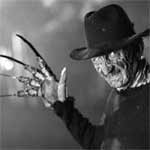 KNAC.COM: Which has been done by a lot of other films, and it works at times. Sometimes itís a statement you want to make. Were you surprised at the success of Freddy Vs. Jason?
KNAC.COM: Which has been done by a lot of other films, and it works at times. Sometimes itís a statement you want to make. Were you surprised at the success of Freddy Vs. Jason?
CRAVEN: I actually was.
KNAC.COM: The producers would undoubtedly like to make a franchise out of it, and they supposedly wanted to bring in Pinhead from Hellraiser at the end of the movie, but they couldnít get the rights to that character.
CRAVEN: Itís like Abbott and Costello Meet The Mummy and Frankenstein Meets The Wolfman. Thereís that kind of possibility for almost any two franchises [pitted] against each other for the fun of it.
KNAC.COM: Have you kept in touch with the stars from your early films?
CRAVEN: In general. I sort of lost touch with David Hess for a long time. He tried to keep in touch with me, but heíd always be hitting me up for jobs. I saw a lot of the Hills cast at the screening. Some of them you keep in touch with and some you donít. Some people go off in different directions than you go. Janus Blythe kept in touch with me for years. She used to have a [local] cable show, and I would do a couple of appearances on that.
Iím certainly still friends with my old producers, like Sean Cunningham and Peter Locke. Sean had a big piece of Freddy Vs. Jason, because unlike myself, he financed Friday The 13th out of a lot of his own money. So he made a very good deal for himself. Nobody thought Nightmare On Elm Street was any good except for New Line. At the time I sold it to New Line, I was flat broke and sold it outright. Iíve done all right for myself, but I certainly know that I lost a big pot on that by not holding on to more of it in the original deal.
KNAC.COM: Are there any other special edition DVDs of your films that you would like to see come out?
CRAVEN: I wouldnít mind seeing special editions of any of them. Deadly Blessing is always fun because it was Sharon Stoneís first speaking role, and Michael Berrymanís in it. One thing I would love to see is the seven Twilight Zone episodes I did in the mid-Eighties. They were all good. They were really good scripts. There were some very interesting Twilight Zones made in that two-year period. I did the first and last [of the second series], which was fun. There was one that Bruce Willis was in. He literally just came to town and came to work on one we did called ďShatterday.Ē I worked with Morgan Freeman before he was Morgan Freeman. We had a great casting director who knew about all these actors before they broke.
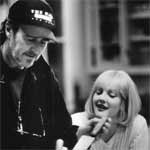 KNAC.COM: Artisan recently released two of your television movies on DVD, Summer Of Fear and Invitation To Hell. Summer Of Fear has both a young Linda Blair and a young Fran Drescher.
KNAC.COM: Artisan recently released two of your television movies on DVD, Summer Of Fear and Invitation To Hell. Summer Of Fear has both a young Linda Blair and a young Fran Drescher.
CRAVEN: Summer Of Fear was made [in 1978] when I first came out here [to Los Angeles]. There was a producer on it, Max Keller, who had seen The Hills Have Eyes and really liked it and looked me up. He really gave me my first chance to direct for television, and that gave me my first chance to direct with 35mm and cameras and dollies and things that I had never had access to. And a star. That got me into the Directorís Guild. It was really a huge break for me. I went right from that to doing a rewrite for him that ended up being Deadly Blessing.
KNAC.COM: Do you think the advent of digital video will open up new doors for the horror underground? Perhaps as a breeding ground for the next Wes Craven?
CRAVEN: Absolutely. If you just look at the films that came out this year in digital Ė Thirteen, 28 Days Later, Once Upon A Time In Mexico Ė they just allow people to make really good looking films for much, much, much less, and the camera work is so much more free because the equipment is so much lighter. I think itís fascinating. The director of Cabin Fever, Eli Roth, gave me this tape that he had run across by a group of kids who had worked for eight years making a shot for shot copy of Raiders Of Lost Ark, which is just phenomenal. [chuckles] I think they really pulled it off Ė every single shot and every moment. Itís great. [Digital video] does open it up to a lot of people that otherwise couldnít afford to make films.
KNAC.COM: Are there any cult horror films that you would like to see released on DVD?
CRAVEN: The Creeper. I saw it as a kid. It scared the shit out of me. The actor was a little bit like Michael Berryman. He had a very strangely shaped head, and this guy lurked outside windows. Iíve only run across a reference to it in print once, so if anybody knows about it at allÖ I was thinking about remake doing a remake of Hills, actually. Iíve been talking about it.
KNAC.COM: Can you really imagine revisiting that story?
CRAVEN: Not myself, but I would produce it if I got a really exciting filmmaker to make it. I donít feel like going out and running around in the desert. [laughs]
KNAC.COM: What horror films have you enjoyed recently?
CRAVEN: I watched 28 Days Later and thought it was a fantastic zombie movie but with tremendous energy and that social comment at the end. I liked Cabin Fever somewhat. I thought Underworld had a great look, but the story was so complicated that I really didnít care that much about the characters. I donít like saying too much in print about other peopleís work. Itís hard enough without having your fellow filmmakers criticize you. Iím looking forward to seeing the new Texas Chainsaw Massacre. Thereís a lot of buzz on that.
I think there is a lot of viability in horror. It will continue because there continue to be horrors in the world and people need to process them by stories that are about horrific things.
KNAC contributor Bryan Reesman is a life-long horror fan who can be accessed at www.bryanreesman.com.




